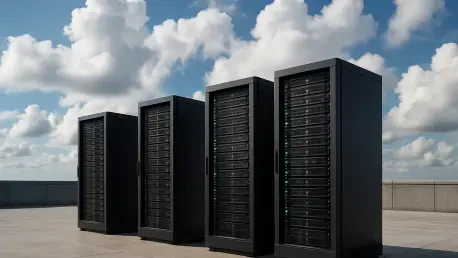Data centers, once pivotal for cloud services, are now at the forefront of the AI revolution. In a landscape increasingly dominated by AI advancements, Meta’s colossal step into AI infrastructure raises a pivotal question: can this technological leap also be an environmentally sustainable one?
Could Meta Revolutionize Sustainability in Tech?
Meta, led by CEO Mark Zuckerberg, is investing massively in AI infrastructure as part of its ambitious plan to lead the AI space. The initiative includes constructing perhaps the most advanced data centers globally, with an impressive 5GW capacity centerpiece. This ambitious endeavor stands not just as a testament to technological prowess but also poses a profound challenge: redefining sustainability in the tech ecosystem. Such initiatives reflect an urgent global need for innovative solutions that match rapid AI development with responsible resource management.
Meta’s Ambitious Plans Capture Global Attention
Meta’s ambitious data center plans have captured global attention, symbolizing a paradigm shift amid the increasing demand for AI technologies. The decision to invest “hundreds of billions” spotlights Meta’s commitment to transforming AI capabilities, with projections of dramatically increased global data processing needs. In response, the company is aggressively hiring top talent from leading AI competitors, igniting discussions about the competitive landscape and how AI, and its infrastructure, will shape future technological advancements.
Exploring Meta’s Game-Changing Infrastructure
Meta’s infrastructure strategy includes building Prometheus, a 1GW cluster in Ohio, and Hyperion, a more massive 5GW installation in Louisiana. These naming conventions point to not only their scope but also the grand vision behind their deployments. The strategic distribution and scaling underscore a concerted effort to build a vast distributed computing network, essential for the increased computational power AI research demands. Both natural gas and renewables are integral to powering these facilities, representing Meta’s approach to balancing operational needs with environmental considerations.
Expert Insights on Meta’s Scale and Environmental Impact
The magnitude of Meta’s undertaking raises substantial environmental and social concerns. As data center energy demands increase, so do their ecological impacts. Experts indicate a trend where AI-related energy use could equal that of a small nation. The use of natural gas alongside renewables points to a transition phase rather than an outright solution, amplifying conversations on how to mitigate the impact on water supplies and local ecosystems. Insight from previous infrastructure initiatives reveals a pattern of significant local impact, sparking discussions on sustainability practices and responsible innovation.
Blueprint for Sustainable AI
Meta’s journey toward AI dominance is also part of a larger dialogue on sustainable AI development. Integrating nuclear energy as a long-term solution is gaining traction, with other tech giants exploring this potential. As Meta prioritizes sustainability, it faces the pressing need for innovative energy management strategies. Companies in the sector are increasingly aware of their environmental responsibilities, pushing toward solutions that marry technological innovation with ecological viability. This push is essential to ensure a future where AI advancements propel society forward without exhausting vital resources.
Meta’s ambitious endeavor is a profound reminder of the complexity and scale of modern tech challenges. As we consider the path forward, it becomes evident that collaboration across industries and disciplines is crucial. By harnessing innovation, companies can aspire to develop not only cutting-edge technologies but also sustainable infrastructures that support both progress and the planet. The future beckons a dual commitment to superintelligence and sustainability, with each being indispensable to the other’s success.









